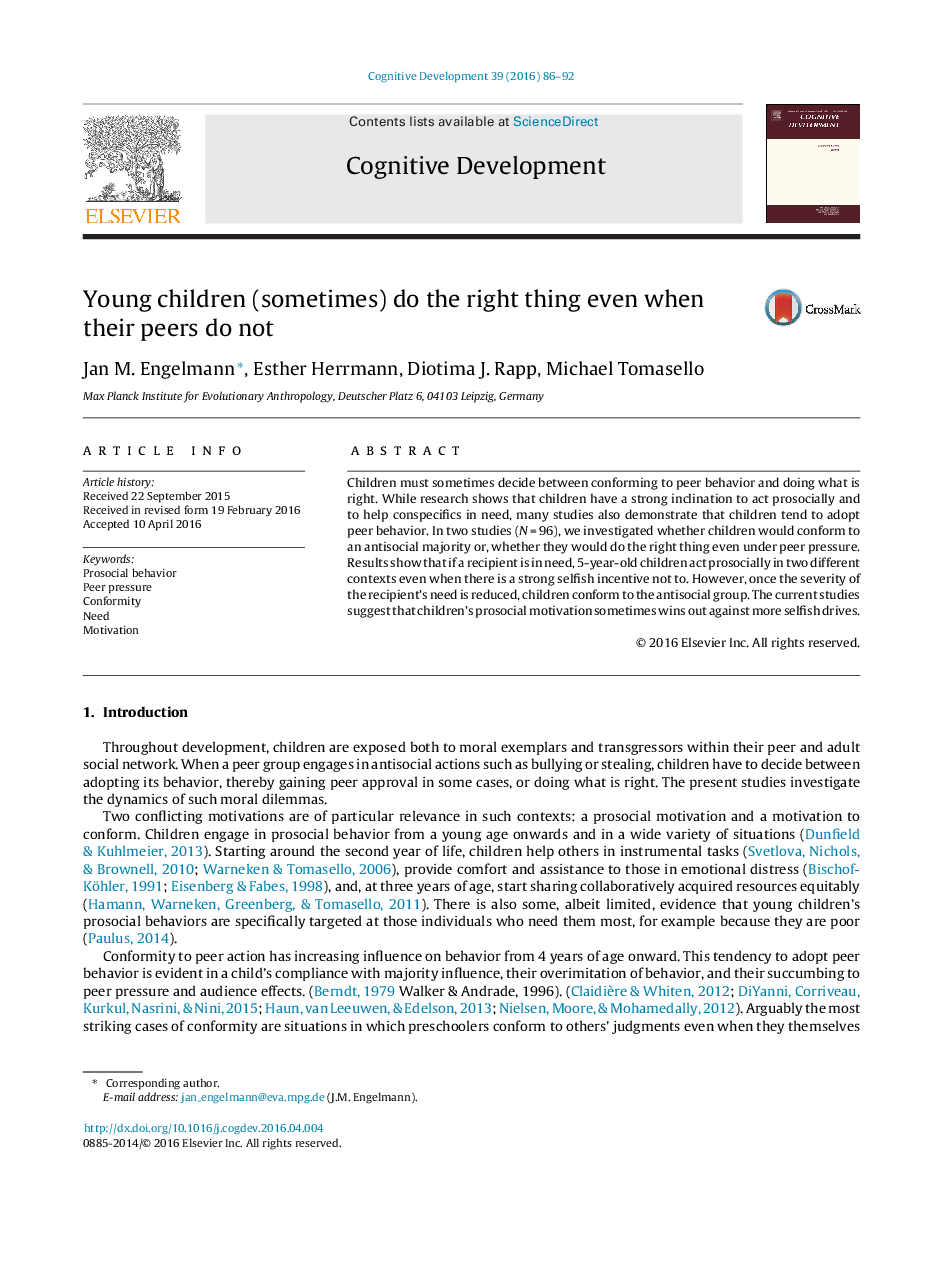| Article ID | Journal | Published Year | Pages | File Type |
|---|---|---|---|---|
| 7272425 | Cognitive Development | 2016 | 7 Pages |
Abstract
Children must sometimes decide between conforming to peer behavior and doing what is right. While research shows that children have a strong inclination to act prosocially and to help conspecifics in need, many studies also demonstrate that children tend to adopt peer behavior. In two studies (NÂ =Â 96), we investigated whether children would conform to an antisocial majority or, whether they would do the right thing even under peer pressure. Results show that if a recipient is in need, 5-year-old children act prosocially in two different contexts even when there is a strong selfish incentive not to. However, once the severity of the recipient's need is reduced, children conform to the antisocial group. The current studies suggest that children's prosocial motivation sometimes wins out against more selfish drives.
Related Topics
Social Sciences and Humanities
Psychology
Developmental and Educational Psychology
Authors
Jan M. Engelmann, Esther Herrmann, Diotima J. Rapp, Michael Tomasello,
